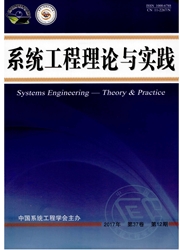

 中文摘要:
中文摘要:
垂直一体化可带来联合经济,但又可能引发垂直一体化企业对下游市场独立竞争企业的拆台行为,例如降低中间产品质量,延迟发货,隐瞒重要信息等,近年来我国发生的宽带接入歧视、液晶面板垄断等问题,就是垂直一体化企业拆台行为的集中体现.论文通过数理模型推导和对中国联通宽带接入市场数据的仿真模拟,研究垂直一体化企业拆台行为的影响因素以及其作用机理.研究结论表明:第一,垂直一体化企业的拆台水平随着最终产品的价格的上涨而上升,随着中间产品价格的上涨而下降;第二,拆台水平随着独立竞争企业市场份额的增长而降低;第三,拆台水平随着子企业其他要素成本的上升而下降,随着独立竞争企业其他要素成本的上升而上升;第四,当子企业对独立企业的需求交叉价格弹性处于一定的区间范围内时,拆台水平与需求交叉价格弹性正相关,与独立竞争企业的需求价格弹性负相关.上述结论对企业间拆台行为治理及政府规制政策制定有着一定的借鉴意义.
 英文摘要:
英文摘要:
Vertical integration not only generates vertical economy but also engages the vertically integrated provider (referred as VIP hereafter) into sabotaging the independent enterprise in the downstream market. For example, the VIP may lower the quMity of the intermediate product, delay the shipment, and hide key information. The recent cases such as the discrimination in broadband market and LCD panel monopoly are typical evidence of the VIP's sabotage behavior. Using mathematical modeling and simulation which is based on data from China Uni-com broadband market, we analyze the factors that lead to sabotage and the mechanism behind. The results show: First, VIP's sabotage is increasing with the final product's price, yet decreasing with the intermediate product's price. Second, VIP's sabotage is decreasing with the independent enterprise's market share. Third, VIP's sabotage is decreasing with the subsidiary's other elements cost and increasing with independent enterprises' other element cost. Fourth, only within a certain range, sabotage is negatively related to the price elasticity of independent enterprise and positively related to the cross price elasticity between subsidiary and independent enterprises. Beyond this certain range, it's difficult to judge the relation between sabotage and elasticity. These findings provide theoretical guidance for policy making in deterring sabotage and regulation.
 同期刊论文项目
同期刊论文项目
 同项目期刊论文
同项目期刊论文
 期刊信息
期刊信息
